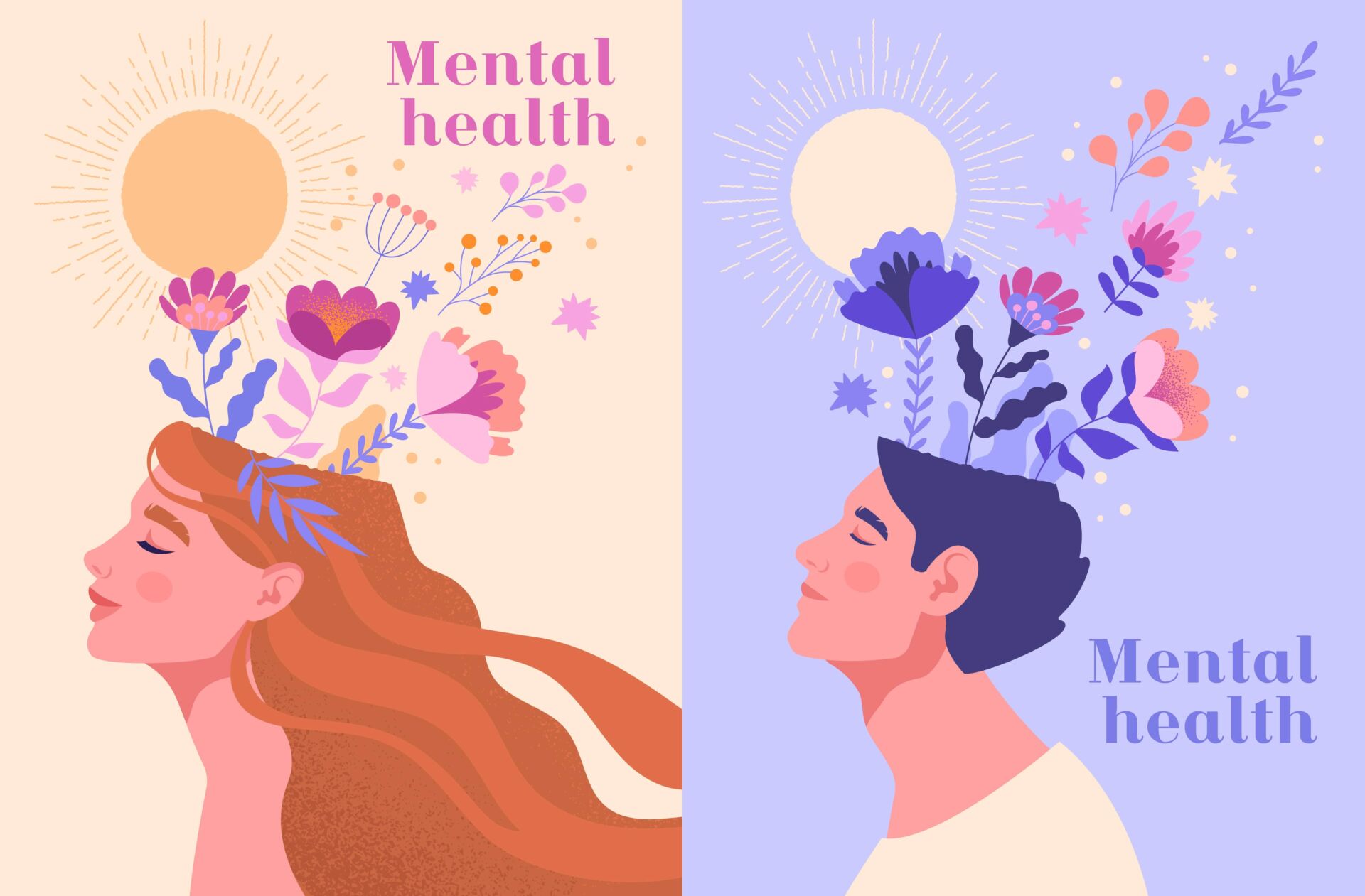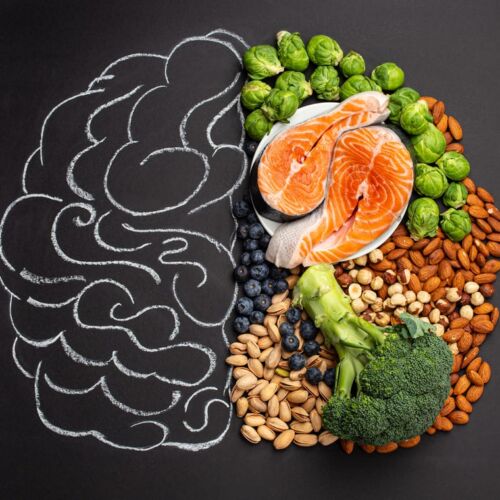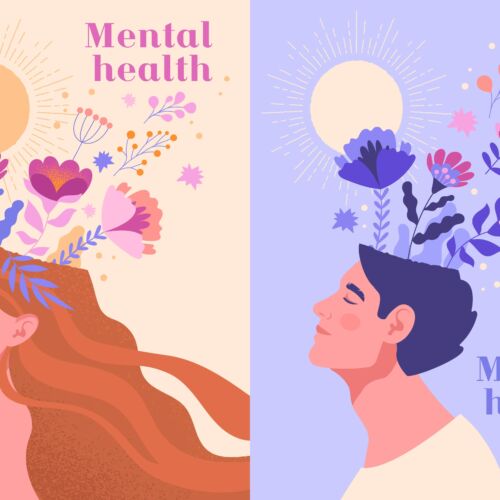8 Nutrients Important for the Maintenance of Mental Health
by Hannah Jackson

According to the Canadian Mental Health Association, 50% of Canadians will have experienced at least one poor mental health episode by the age of 40.
Symptoms of depression such as irritability, low mood, and insomnia have been shown to improve with the adaption of healthy eating habits and regular physical activity. Choices like the Mediterranean eating pattern not only improve your overall mental health, but your full body also receives the benefit of this balanced approach.

Here are 8 nutrients to look out for when eating for your mental health!
B Vitamins
B vitamins such as vitamin B12, vitamin B6, riboflavin, thiamin, and folate have many different roles within the body such as DNA synthesis and energy production. However, this class of vitamins also plays a significant role in overall brain function, including the production of mood-changing chemicals called neurotransmitters.
You can find B vitamins in foods like whole grains, legumes, leafy greens, meats, as well as fortified milk and cereals.
Vitamin C
While more research in this area is still needed, one study found that inadequate levels of vitamin C were associated with decreased “mental vitality.” Another study on adult males (18-35 years of age) found that sufficient vitamin C levels were linked to improvements in mood and depression.

The best way to ensure vitamin C needs are met is by consuming a variety of fruits and vegetables every day. Citrus fruits are particularly high in vitamin C.
Vitamin D
Vitamin D is indirectly involved in the production of certain neurotransmitters (dopamine and norepinephrine), similar to B vitamins. When these are in short supply within the brain, it can lead to mood-related disorders like anxiety and depression.
You can find vitamin D in foods like fortified milk products, fatty fish, and egg yolks. However, one of the easiest ways to get your vitamin D in is to get some sunshine!

However, most Canadians are unable to get enough sunlight from October to March to synthesize adequate amounts of vitamin D. Therefore supplementation may be required, likely in the amount of 400 IU per day but no more than 1000 IU for both children and adults.
Beta-Carotene
Although the mechanism is not completely understood, low levels of beta-carotene (a dietary form of vitamin A) have been linked with the development of depressive symptoms in those aged >65 years. Another study conducted on those aged 18-80 years found similar results. Low levels of dietary forms of vitamin A were associated with higher risks of developing depressive symptoms.
You can find beta-carotene in leafy green vegetables and orange fruits/vegetables like carrots, oranges, sweet potatoes, and butternut squash.
Iron
Low levels of dietary iron have previously been linked to low levels of serotonin within the brain which can lead to mood-related disorders. Serotonin is one of many brain chemicals that plays a role in functions such as mood and sleep regulation.
Foods like red meats, oysters, legumes, dark chocolate, and leafy greens are all good sources of iron that can help prevent deficiency.
Zinc
Zinc is involved in emotional regulation and inadequate levels have been linked to depression among other mood disorders. One study found that those with higher zinc intake had a reduced risk of developing depression.
You can find zinc in shellfish, legumes, nuts/seeds, eggs, whole grains, and dairy products.
Omega-3s
Omega-3s are integral in building the membranes of cells and the “communication lines” of the brain. Studies suggest that the consumption of omega-3s may be associated with the reduction and/or improvement of depressive symptoms.
Good sources of omega-3s are walnuts, canola oil, fatty fish and other seafood, flax and chia seeds, as well as navy and soybeans.
Fibre
Diets high in fibre have been linked to a reduction in the severity of depressive symptoms. Dietary fibre is the preferred food of healthy bacteria in the gut. These little microbes interact with your nervous system, influencing anxiety, the stress response, as well as memory function!
While research in this area is still ongoing, fibre has many other benefits such as bowel regularity (natures broom), providing the feeling of fullness, and reducing cholesterol levels.
As a general rule of thumb, aim to consume 20-40 grams of fibre per day. Your specific fibre needs can depend on your sex, age, lifestyle, and dietary habits. Speak to a Registered Dietitian to determine your unique needs.
Nutrition can help you feel better and support your mental health as part of an integrated plan to optimize your overall health. Dietitians can help and will meet you where you are at by offering a safe and judgment-free space to focus on your mental health through the foods you eat.
Click here to find a Registered Dietitian practicing in the area of nutrition for mental health near you!
About the Author: Hannah Jackson is a third-year Dietetics student at the University of Alberta.
Contributor: Sabrina Ng
Reviewed by: Lindsey McGregor, RD


